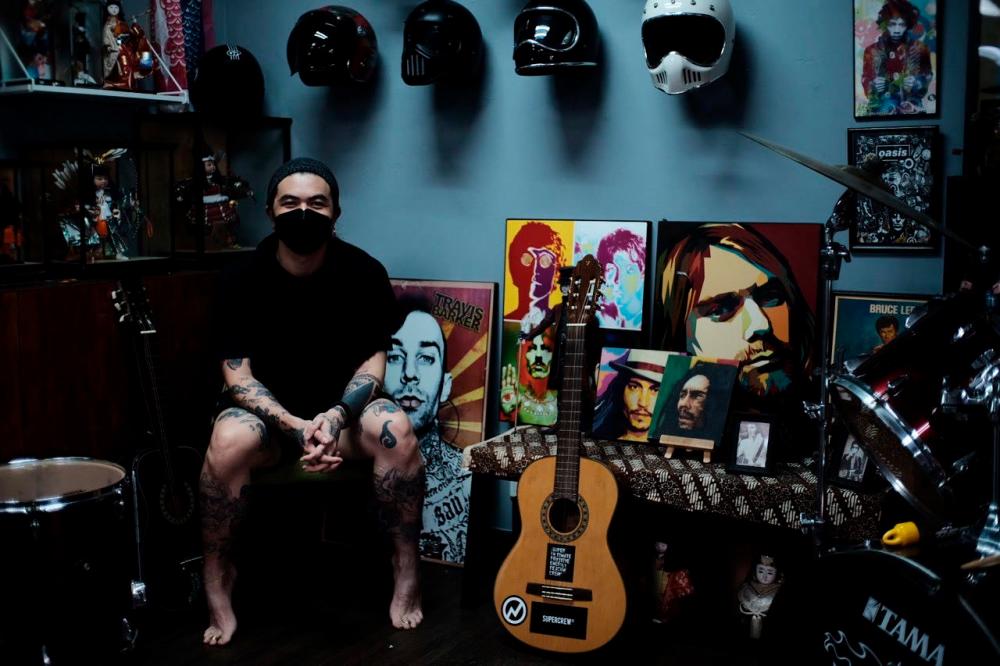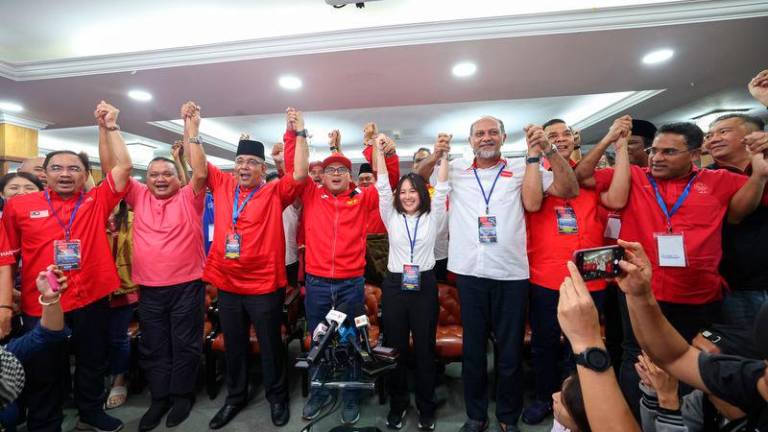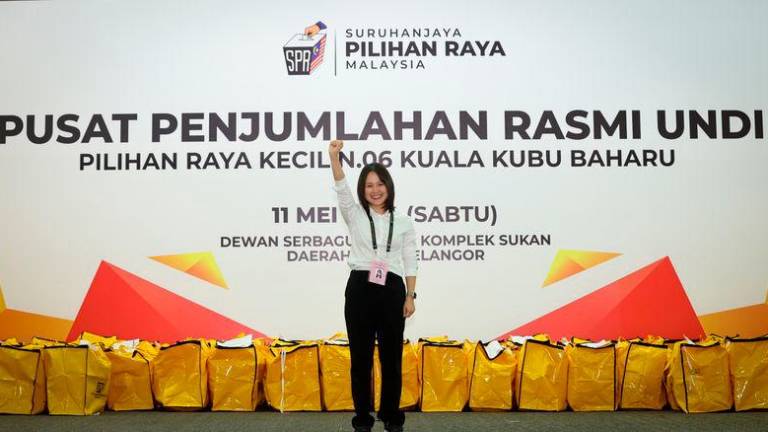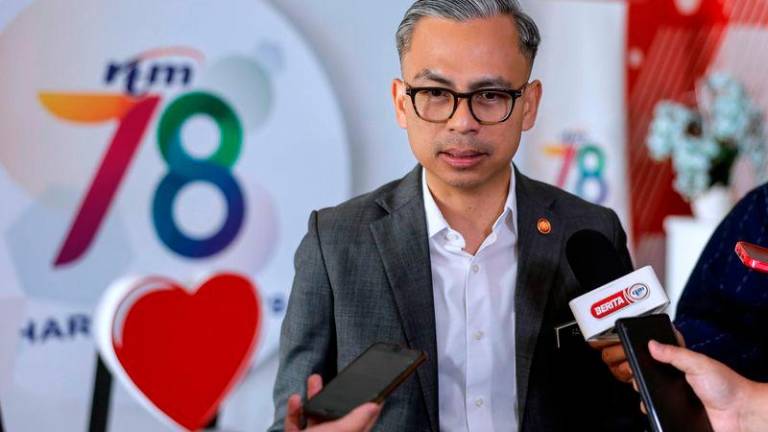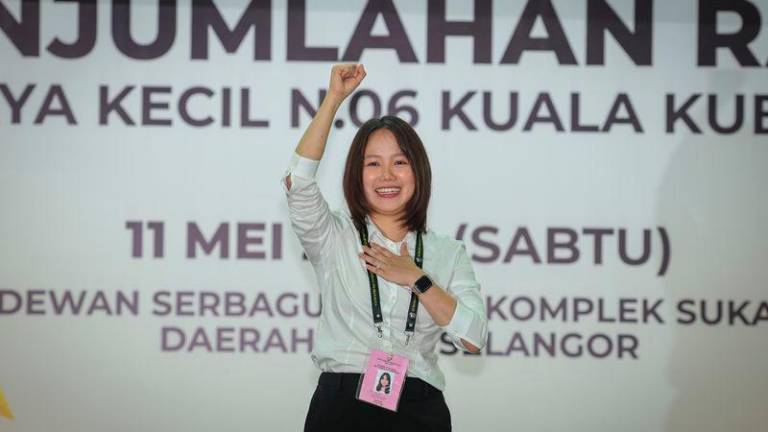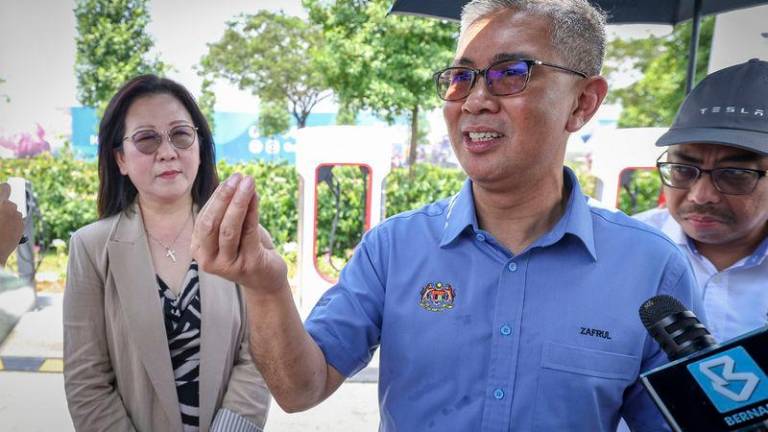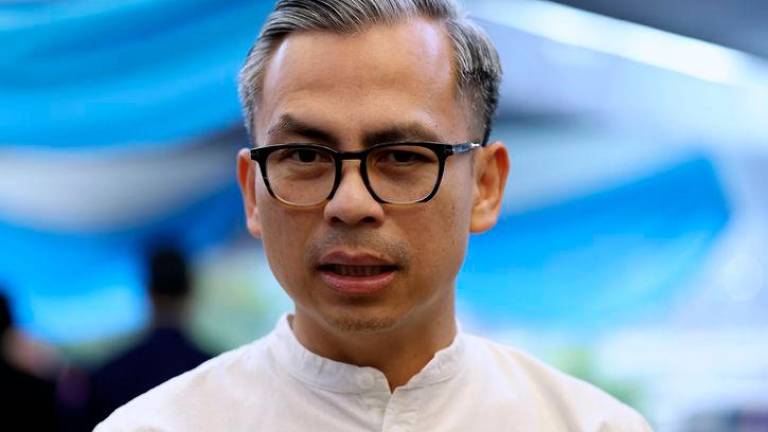TODAY, there’s a lot of freedom of self-expression in different forms of art compared to previous decades. This extends to body art, as seen in people who ‘decorate’ their skin in tattoos. People have variety of reasons for why they choose to get tattoos. Some want to commemorate their warmest memories, some do it to hide scars, and for others, it’s a tribute to style. There are many reasons. Tattoo art has been around for a long time. And tattoos are not just for urban hipsters, as certain tribes and communities around the world consider tattoos part of their culture or rituals. This form of body art is widely gaining acceptance in modern society. But do you know all the pros and cons of getting a tattoo?
theSun reached out to two talented tattoo artists, Lee Kei Mun (better known as Kei) from The Tattoo Parlor Malaysia, and Annie Tan who runs her own private studio. Some tattoo afficionados might already be familiar with their work, but we decided to have them take us behind the scenes to learn more about them and their work. We ask several questions, ranging from how they got into tattooing to where they receive inspiration for their beautiful designs, as well as what their best advice is for novice artists.
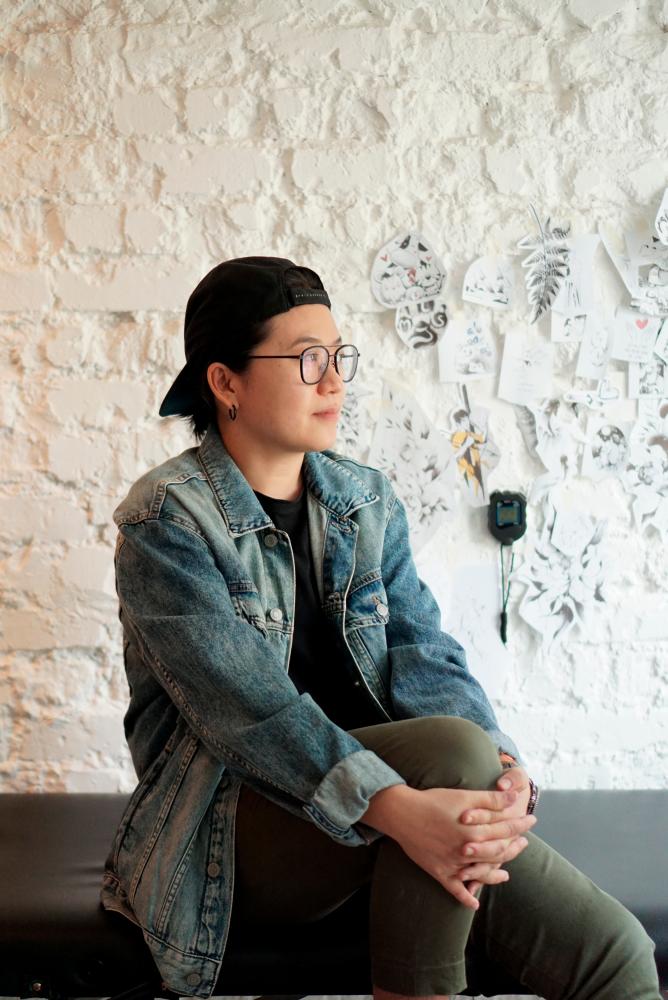
When did you start your career as a tattoo artist?
Kei: “It all started 15 years ago. I was always into art and drawing and I knew I wanted a career in art (somehow). I fell in love with drawing because I enjoyed it too much, and became a tattooist naturally after being a graphic designer for about eight years.”
Annie: “I started learning the art of tattooing in 2014 while still working full time as a creative in an advertising agency. [I] officially started tattooing in 2015 as a full-time artist under my tattoo mentor, Haiyuan Sun.”
Who or what influenced you?
Kei: “The first time I can remember being drawn to art was as a child. I was eight years old and I fell into the swimming pool, and a man jumped straight to the pool and pulled me out. He had quite a lot of tattoos on him and it looked cool. Probably that’s when my love for tattoos started.”
Annie: “There was a love-hate relationship between me and my previous job. I love the fun of working in advertising, but clients are always working on a budget and sometimes [would] rather go with something really safe (boring). When you know your creative work will be rejected, you start creating something safe (boring). That moment I started questioning myself: was that the life I wanted to pursue? My ex-partner was a piercer and encouraged me to learn tattooing, thinking that perhaps we could work together as a team. Hence, I decided to learn tattoo as hobby initially that eventually lead me to who I am today.”
How many tattoos do you have on your body?
Kei: “I don’t even know, I have over 50 tattoos. It’s because I use my body to practice tattooing.”
Annie: “About four, and they’re all hidden.”
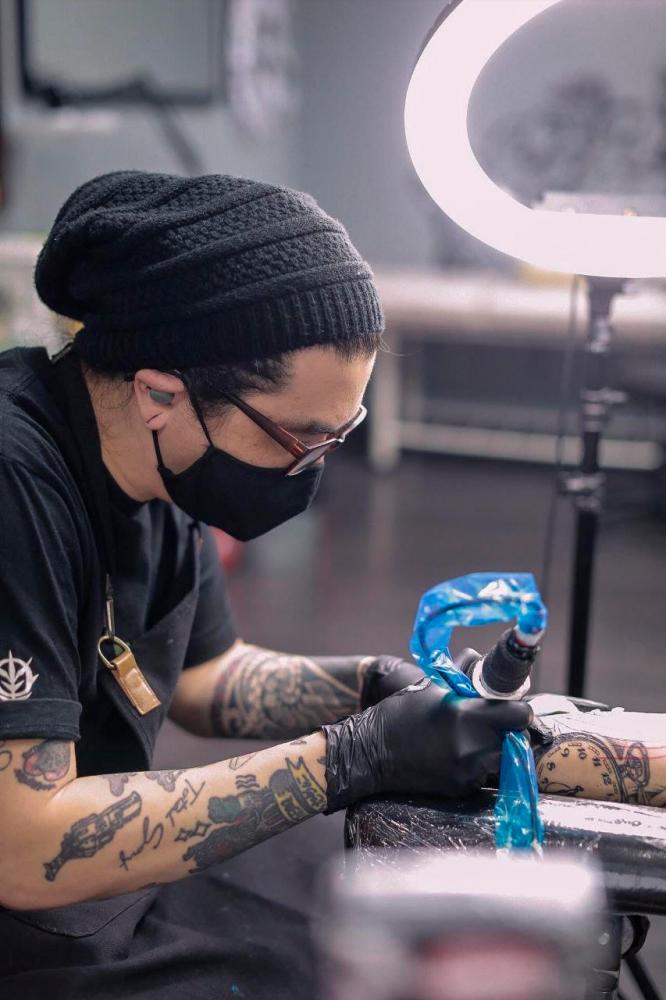
Who is your favourite tattoo artist of all time?
Kei: “I don’t think I will be able to choose, there are love of great artists up there that I look up to. Almost all tattoo artists really understand the curves of a customer’s body and creates really beautiful tattoos. I respect them all.”
Annie: “There are too many great artists I love, [but] I would say that the one who inspired me to come out with the style of work (stippling work) would be Kamil Czapiga from Poland.”
If you could describe your art in one word, what would it be?
Kei: “Chaos.”
Annie: “Contemporary.”
What is your favourite part of being a tattoo artist?
Kei: “I have problems with attention, especially focusing for long periods of time or paying attention to details. So, working at my own speed and space is very calming and I love that for me. Nobody tells me what to do, I get to decide everything.”
Annie: “To me tattooing is not just about creating art, it is a collaboration between the client and the artist. I would say my favourite part is to see my clients’ expression, and being appreciative when they look at the tattoo being permanently inked onto their skin; those expressions are priceless. I would never get this kind of appreciation from my previous career.”
What is the most challenging part of being a tattoo artist?
Kei: “Goes back to the previous answer, I have ADHD. So, I struggle to focus. Most of the time, I tend to stress about it, but I guess it’s a challenge I am willing to face because I just love my job too much. I am learning, I am getting better.”
Annie: “The clients. It was very challenging when I was still new in this industry, nobody actually dared to trust [me] to tattoo on their skin. You need to worry about the stress of tattooing on strangers and also making sure your commission could cover your daily expenses. At one point I was doubting my decision to quit a decent income job to become a tattoo artist. However, hard work does pay off.”
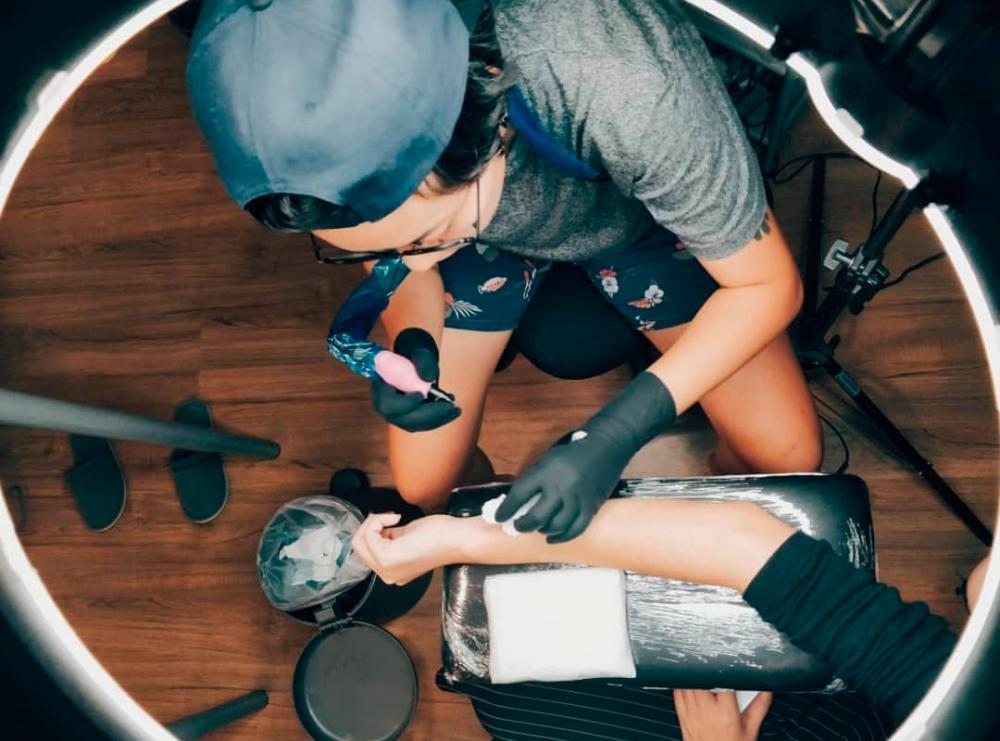
Any advice for someone considering this career?
Kei: “Patience is the key. It’s not easy. Most of the time, you will probably feel like giving up, but it’s all about the dedication towards what you love. So have patience, lots of it.”
Annie: “Do some research and look for the right artist or mentor to learn the art. Learn from an artist, instead of learning from an academy that you barely know who the ‘trainers’ are. This career requires you to draw every day, if drawing is not your passion, you will be struggling. Good attitude is a must, talent is a bonus.”
Based on your own experience, what are some of the pros and cons of having a tattoo?
Kei: “Tattoos are a great way to show your personality without words. They are not only meant for self-expression, but they can also help you manage your emotions, and they remind you how wonderful life can be, though it can be tough at times. The disadvantage is that although society is becoming more open to tattoos every day, there are still taboos about body art that can potentially affect the job you get in life. There are still many professions and occupations where tattoos are prohibited. From a scientific point of view, they can be both very harmful and beneficial at the same time.”
Annie: “Tattoos are a sign of artistic expression. One is able to express themselves through arts, and the cons are people’s misconceptions, they judge you based on your tattoos and it’s definitely a career killer. Some companies are not willing to hire people with tattoos.”
What are your strengths and weaknesses as a tattoo artist?
Kei: “I think I am able to bring my vision to life. I am well trained to see things. When customers pass me vague information about something they want to ink on their body, I am able to satisfy them with my work.
“As for my weakness, it’s the stress. Sometimes, I get too busy and end up not having time for myself.”
Annie: “I have the ability to convince clients to be more open with their ideas and to try something new, instead of just doing something that’s been done many times; and my weakness: very bad time management, and because I work mostly on weekends as well, I am not able to spend time with my loved ones.”
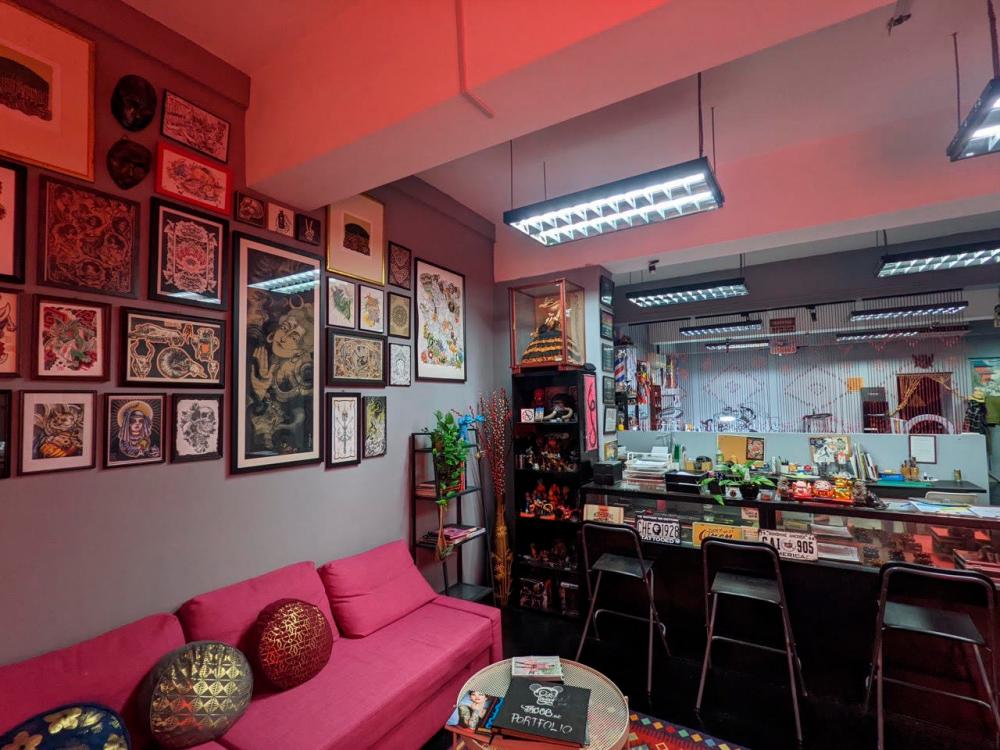
What is a common misconception people have about what you do?
Kei: “[People think I am a] gangster. People always stare at me while I’m out and about. It’s probably due to the fact that I have tattoos all over my body. I am not a bad person. I enjoy reading and relaxing at home with my family.”
Annie: “Most people would think that tattoo artists are high school dropouts, gangsters or even addicts. They think their job is a disgrace when that is really not the case.”
Tell me about a time you made a mistake when tattooing someone.
Kei: “I once tattooed a guy with a picture that he claimed to be of his sister. I should have asked him for more details but only after I was done inking him, he confessed that it was actually of a girl he was trying to pursue (I don’t do picture tattoos unless it’s of family members).”
Annie: “There was [an incident] during the early period of my career, a client messaged me the word that she wanted to tattoo on her wrist. Everything was good when she arrived, until I saw her showing the picture of the tattoo she wanted to her friend who was accompanying her. It showed the word ‘Peace’ but I realised she had sent me the wrong word earlier – ‘Peach’. Thank God I found the mistake first!”
Are there any tattoo designs that you don’t do?
Kei: “Anything superstitious or gang signs.”
Annie: “I don’t do tattoos on the fingerprint area as it will not heal nicely due to the nature of the skin on that placement. I don’t tattoo on genitals either. Or do cover ups for Thai chanting scripts / sensitive or religious elements.”
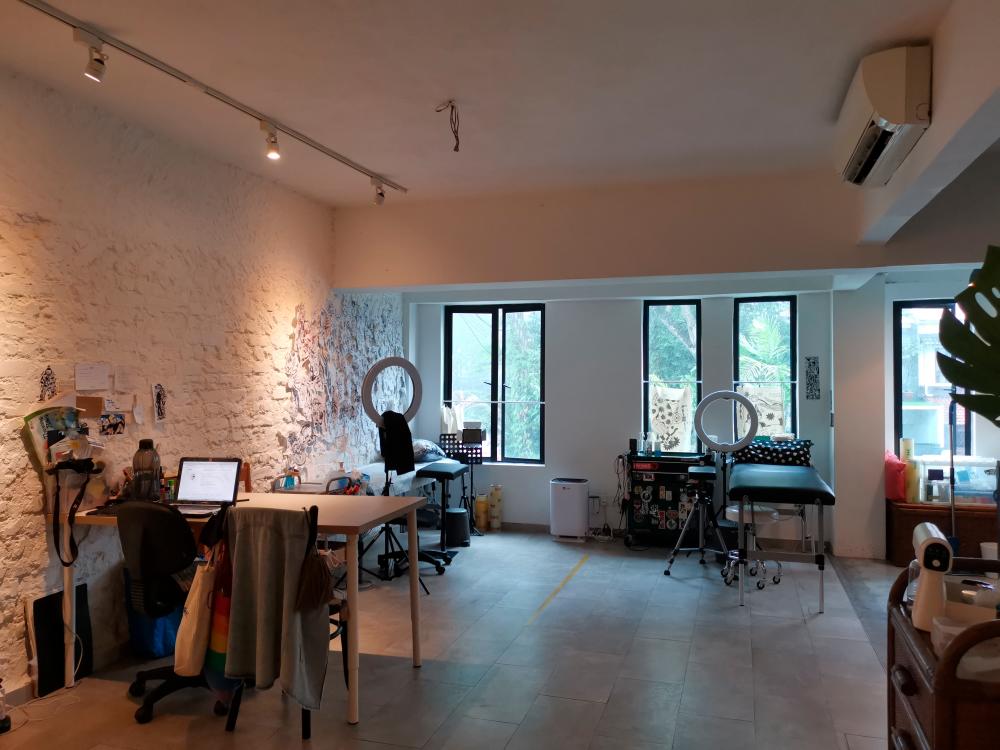
What are the most interesting tattoos you have given?
Kei: “I did a tattoo of Starry Night by Vincent van Gogh that took about two sessions (seven to eight hours). It turned out super pretty, and I was proud of the end result.”
Annie: “A client requested for a blindfold tattoo, he sent me a list of his ideas and allowed me to choose a design from the list. He trusted me and only saw the end result after I was done. It was a really interesting process.”
For Annie, what is it like being a female tattoo artist in the industry, and has being a woman in the tattoo industry helped you in some ways, or has it ever been a disadvantage?
Annie: “So far, I have not encountered sexism in our industry because I work as a solo artist. I have also noticed that there are more and more female artists pursuing this once male-dominated industry. Perhaps many years back, most of the clients were males, [but] these days females are more expressive, they go for what they want; hence the majority of my clients are actually females, and they are comfortable having me to tattoo on them. Especially [with] private placements, they feel more secure having a female artist to tattoo them.”
Is there anything you want to tell our readers?
Kei: “Tattoos last a lifetime. Always think twice before impulsively getting a tattoo.”
Annie: “Always trust your artists. Most of the time the best works come from [having] the trust and creative freedom.”
The Tattoo Parlor
Instagram: @thetattooparlormalaysia
Conlll
Instagram: @conlll



